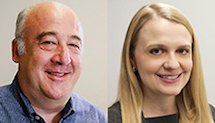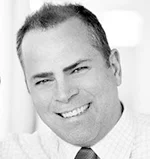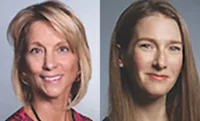 |
| Ken Deutsch and Julie Strack co-authored this article. |
We’re living in a social climate where life-and-death topics are divisive and politicized, including strategies to combat the COVID-19 pandemic and address health disparities. At the same time, we’re surrounded by more bad information than ever before.
Experts on the frontlines of our nation’s health crises are quickly adapting to the moment. Many physicians are becoming increasingly savvy about working through social and traditional media platforms to put scientific and patient-focused perspectives at the center of discussion.
That was then
For 10 years, JPA Health has been tracking how health professionals engage among themselves and with others online through GRETEL, our proprietary insights platform. In the past, it was commonplace to see health professionals using social media—in a professional capacity—limit their posts to their area of expertise.
However, once in a while, these providers might address political and social issues ranging from disparities in care to sexism in their profession. However, when we looked at patterns in the use of specific keywords and hashtags, we found that topics directly related to medical specialties (i.e., oncology, surgery) outpaced discussions on general social issues.
| This article is featured in O'Dwyer's Oct. '20 Healthcare & Medical PR Magazine (view PDF version) |
This started to shift two years ago, and the trend has dramatically accelerated in 2020.
Today, physicians are discussing social issues more frequently than issues directly related to their medical specialties. They’re frequently discussing topics related to both public health and social justice, including advocacy for research-based measures to slow the spread of COVID-19, support for Black Lives Matter and visibility of the disproportionate impact of the pandemic on underserved communities.
This trend began to emerge two years before the COVID-19 pandemic, when physicians propelled their perspectives to the center of the national conversation on gun safety. In a November 2018 tweet, the National Rifle Association stated that “doctors [should] stay in their lane [on gun control],” sparking an outpouring of posts from physicians on how they witness the effects of gun violence as healthcare providers. Physicians drew wide attention to the issue of gun safety and positioned themselves as influential advocates. The discussion resulted in a viral hashtag, #ThisIsMyLane, which was widely shared by physicians in late 2018. For example, a prominent post leveraging this hashtag by Dr. Judy Melinek was retweeted more than 100,000 times and received more than 500,000 likes on Twitter. Dr. Melinek also authored an article on the topic for Vox, titled, “The NRA told doctors to ‘stay in your lane’ on guns. I’m a doctor. This is my lane.” Shortly thereafter, CNN covered the controversy.
A year of crisis
The dramatic events of 2020 put this trend on fast-forward, as many healthcare professionals elevated their voices to advocate for health and equity in response to urgent and unprecedented challenges. In March 2020, medical professionals of every specialty commented on COVID-19 more frequently than topics within their specialty area or any other health issue. While the conversations started with the cancelling of medical conferences and support for healthcare workers directly impacted by COVID-19, the conversation shifted to amplify broader public health messaging around #FlattenTheCurve and calls for PPE production.
When discussions on measures to combat the pandemic on individual and systemic levels became politically divisive, healthcare professionals took leading roles in advocating for research-based public health measures, such as social distancing and wearing a face covering while in public. For example, following a statement from President Trump in March that he’d like to see the nation’s businesses and churches open by Easter, physicians vocally pushed for continued social distancing to protect the public. The Council of Medical Specialty Societies, a coalition representing more than 800,000 physicians, authored a letter to the administration to “support travel and gathering restrictions to slow the transmission of coronavirus disease 2019.” Influential physicians also warned of negative health consequences in a host of top-tier print and broadcast media outlets.
In late May and early June, millions across the globe began to speak more vocally about issues related to race in the U.S. in response to the Black Lives Matter movement. Healthcare professionals joined the conversation to advocate for social justice and health equity for Black communities. In addition to discussions about race and policing related to Black Lives Matter, many influencers including physicians advanced parallel discussions on health equity. Statistics on the disproportionate loss of life from COVID-19 within underserved communities were frequently discussed alongside issues related to Black Lives Matter. Physicians amplified awareness of all these social justice issues and advocated for greater equity within healthcare systems. For example, data within JPA’s GRETEL demonstrates that posts from medical professionals on #BlackLivesMatter were roughly equivalent in June to posts on their medical specialties.
What happens next
Advocacy for political and social issues related to public health are likely to continue accelerating in the future. Many people across the nation, including physicians, increasingly understand the urgency of promoting sound science within public conversations.
But while interest in communicating is increasing among physicians and scientists, debates continue about the most effective ways to promote scientific information and avoid sharing content that either may intrude on patient privacy or sow further division.
For instance, some criticized #ThisIsMyLane social media posts—which contained images of gun violence—for being too graphic or triggering to some viewers, and for potentially violating patient privacy. Debates continue about the most effective ways to engage members of the public who have little trust in science and medicine on the importance of public health measures.
Communications professionals have an important role to play in these discussions. We have an opportunity to apply our expertise to best practices in scientific communications and partner with healthcare professionals to increase the visibility of their perspectives.
As an example, we can contribute to existing scientific programs, which have been initiated by organizations such as the National Institutes of Health. As part of existing or new initiatives, it may be helpful to develop workshops for healthcare professionals on effective online communications and contribute to the development of best practices for scientific communications. There’s also still an urgent need for research on effective methods for promoting adherence to public health measures among members of the public. This research will likely call for collaboration among experts in communications, social science and public health.
In our view, the medical community has been unexpectedly bold with their social content. This presents a huge opportunity for collaboration to get quality, trusted information out to a public being bombarded from all sides. As communicators, we should embrace this courageous approach.
***
Ken Deutsch is Executive Vice President of Research and Insights at JPA Health. Julie Strack is Account Director of Research and Insights at JPA Health.


 Lo Isidro, senior director at Real Chemistry with more than a decade of strategic communications and PA experience, has joined Narrative Strategies.
Lo Isidro, senior director at Real Chemistry with more than a decade of strategic communications and PA experience, has joined Narrative Strategies. Nelson Fernandez, former North American chair of APCO Worldwide and managing director of Burson-Marsteller, has joined Volunteers in Medicine Berkshires as director of communications and PA.
Nelson Fernandez, former North American chair of APCO Worldwide and managing director of Burson-Marsteller, has joined Volunteers in Medicine Berkshires as director of communications and PA. Lilit Bargar, who was most recently an EVP in the healthcare practice at Weber Shandwick, comes on board at GCI Health as EVP, corporate practice lead.
Lilit Bargar, who was most recently an EVP in the healthcare practice at Weber Shandwick, comes on board at GCI Health as EVP, corporate practice lead.
 Five ways that successful thought leaders are made.
Five ways that successful thought leaders are made.


 Have a comment? Send it to
Have a comment? Send it to 
No comments have been submitted for this story yet.